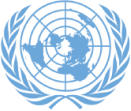Security Council
Briefing on Peacekeeping Operations: Police Commissioners
10 November 2016
Statement
Mr. President,
We thank the delegation of Senegal for organizing this annual briefing with the Heads of Police Components of selected United Nations’ Peacekeeping Operations and Missions worldwide, allowing a very useful interaction between Council Members and Police Commissioners who are in essence our eyes on the ground.
we are grateful to Under-Secretary General for Peacekeeping Operations, Mr. Hervé Ladsous for providing us an overview of the current challenges facing United Nations police; and to Commissioner Bruce Munyambo of UNMISS, South Sudan, for shading light on the issue of protection of civilians, community engagement, crisis management and changes in mandate; to Commissioner Priscilla Makotose of UNAMID, Darfur, for discussing gender sensitive policing and conduct, including sexual exploitation and abuse; to Commissioner Georges-Pierre Monchotte of MINUSTAH, Haiti, for elucidating us on the critical importance of police capacity building and development as part of a wider security sector reform effort, and to Commissioner Issoufou Yacoubou of MINUSMA, Mali, for providing us with such useful insights on transnational threats, safety and security of United Nations Police.
Mr. President,Historically, the Police Component of United Nations Peacekeeping Operations and of Special Political Missions have played an important role in assisting host countries in the field of law, through policing and, in some cases, such as in countries with a weak and less developed infrastructure, in implementing law enforcement reforms. However, as the latest report of the High-Level Independent Panel of Peace Operations stressed, in recent years, the functions of this Component have increased in an unprecedented manner in various peacekeeping operations and special political missions given the ever increasing challenges this, alongside the military Component faces within the entire peace and security spectrum, from conflict prevention and management to peacekeeping, peace-building and in sustaining peace.
This exponential growth in the functions and the size of the UN Police, where today 13,500 officers are deployed to 12 peacekeeping operations of whom 10 per cent are women, illustrates the challenges the diverse mandated tasks and requirements the UN Police faces which are translated into changes in the security situation features, including changes related to the type of needs, along with an increasing number of threats, ranging from the traditional basic security problems to the fight against terrorism, transnational organized crime and corruption. Thus, in recognition of these new reality, we are pleased that the Security Council passed resolution 2185 (2014), the first standalone resolution in the history of the UN Police in Peacekeeping Operations particularly as the Police Component is the first line of protection and contact with local populations while dealing with the restoration of confidence between the host nation population and its National Police, preventive diplomacy which are summed up around two axes: protection against physical violence and the creation of a protective environment.
Mr. President,
While all the topics addressed by the briefers today are of paramount importance, we took note of following three topics which we shall now address in detail:
(i) Protection of Civilians: Concepts and Challenges:
The physical protection of civilians, as traditionally mandated by the Security Council, is the primary reason to deploy a UN Peacekeeping Mission. Unfortunately, today this core function which involves the UN Police, is seriously challenged by repeated cycles of violence, weak governance and recurring instability even in countries that have successfully implemented peace agreements. In addition, the interpretation of protection of civilians from a UN perspective, through the three tier approach, a key element of a mission strategy, where Dialogue and Engagement (Tier I); Provision of Physical Protection (Tier II); and Establishment of a Protective Environment (Tier III), all key in ensuring a mission’s success, is challenged by the lack of resources, enormous law and order problems, inadequately trained or prepared military and police forces, ineffective information gathering or information analysis, weak or non-functioning states and, poor unity of effort by different Police Contributing Countries (PCC’s) within a mission, are among other challenges that the Security Council should address immediately.
(ii) Gender sensitive policing/conduct, including sexual exploitation and abuse:
The presence of women in the United Nations Police, increases the ability of missions to establish trusting relationships with people, especially with women. In addition, the role of women police is essential to create an environment in which victims, including victims of rape or sexual violence, feel a sufficient level of confidence to report crimes since such attitude may otherwise lead to dangerous situations, especially for women. Thus, it is necessary to pay special attention to gender by ensuring that there is greater integration of women in the UN Police component and the national police. Thus, we warmly welcome the establishment of a UN project for the training and selection of women police which has led to the unprecedented appointment of about 2,300 female officers from seventeen Member States to participate, in 2014, first in the training in Rwanda and Burkina Faso and later on in Cameroon.
(iii) Police capacity building/development on security sector reform efforts:
The rather complex scenario to which it is exposed to police component means that there is a need to increase the number of well-trained police officers deployed within the UN Peacekeeping Operations and Special Political Missions. However, it is important that PCC’s pay greater attention to the selection, orientation, training and selection skills before deployment on the ground, to ensure that peacekeeping needs are met effectively as Police Component's ability to fulfill the mandates for the consolidation of police institutions depends on concrete and realistic operating instructions that clearly recognize the political and technical nature of police reforms. In addition, the challenges posed to the Police Component require increasingly sophisticated skills even in scientific and technological fields. This is to ensure success in the implementation of national legislation and the fight against organized crime which certainly requires increasing sophistication.
Thus, it is essential to introduce reforms in areas such as governance structures, the legal and regulatory framework, supervision of the civilian population and the government, ethical leadership and basic services to ensure sustainable and democratic police, reforms that should be included in all strategic development plans of the police. In building professional institutions, the United Nations Police should help the police of the Host State to develop efficient systems for human resources, transparent management of budgets and establish procurement processes and structures for logistics management and vehicles, among other things. In this respect, the Strategic Framework for the activities of the International Peacekeeping Police Division should provide a solid model to build police institutions and provide a more structured and standardized model for the UN police approach.
Mr. President,
The rather complex scenario to which the UN Police Component is exposed calls for the Council to give clear, credible and achievable mandates to the Police Division and the UN Police Components in the field and that these are matched by sufficient resources which should be informed by national and local priorities including host-state key reform objectives. In addition, PCCs should pay greater attention to the selection, orientation and skills training before deployment on the ground, to ensure that peacekeeping, peacebuilding and peace sustainment are not only a success but do not compromise the United Nations’ principles of impartiality and human rights.
Finally, we thank, once again, the Republic of Senegal for chairing such a fruitful annual briefing with the Heads of Police Components as this has allowed us to get a better understanding of the challenges and problems faced on the ground. As a Member of the Security Council, Angola stands committed to work tirelessly with other Council Members on finding innovative solutions to improve the work of the UN Police in Peacekeeping Operations and Missions worldwide.
Thank you so much!


